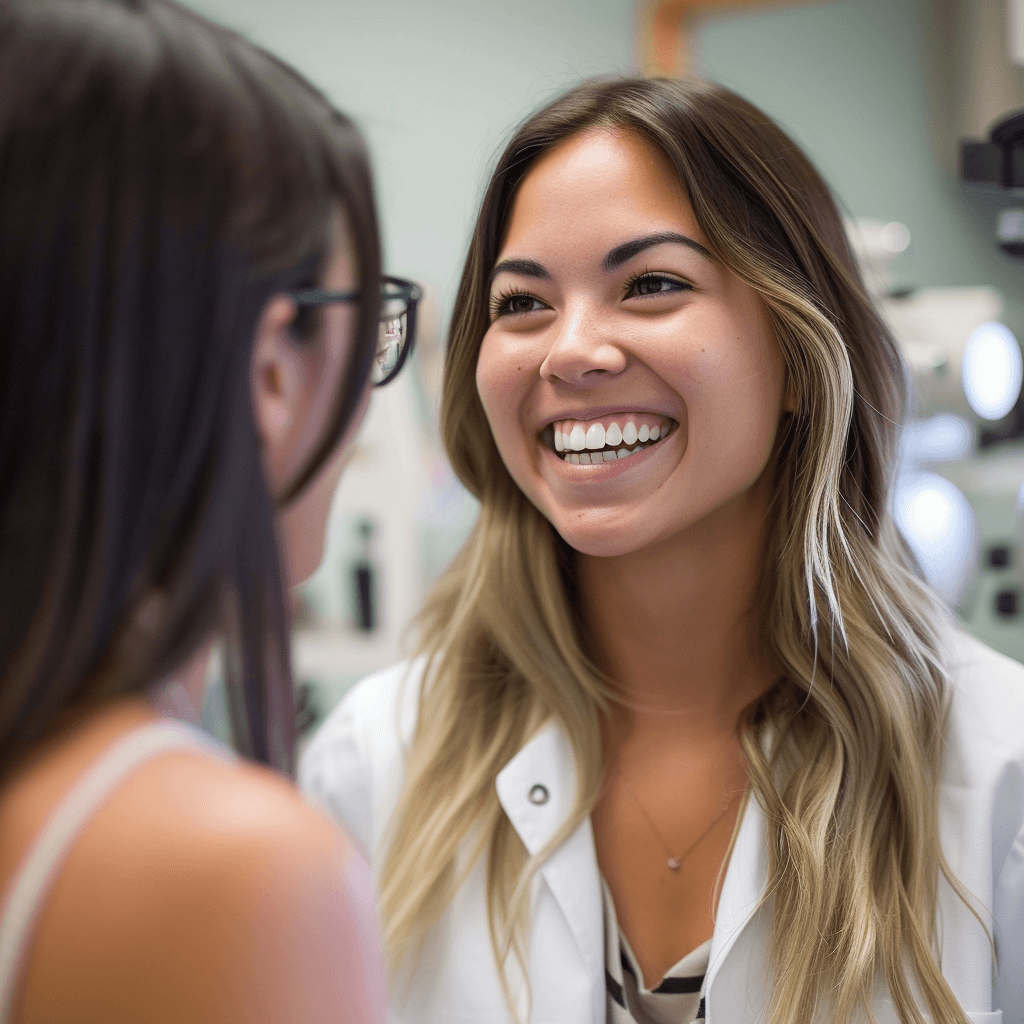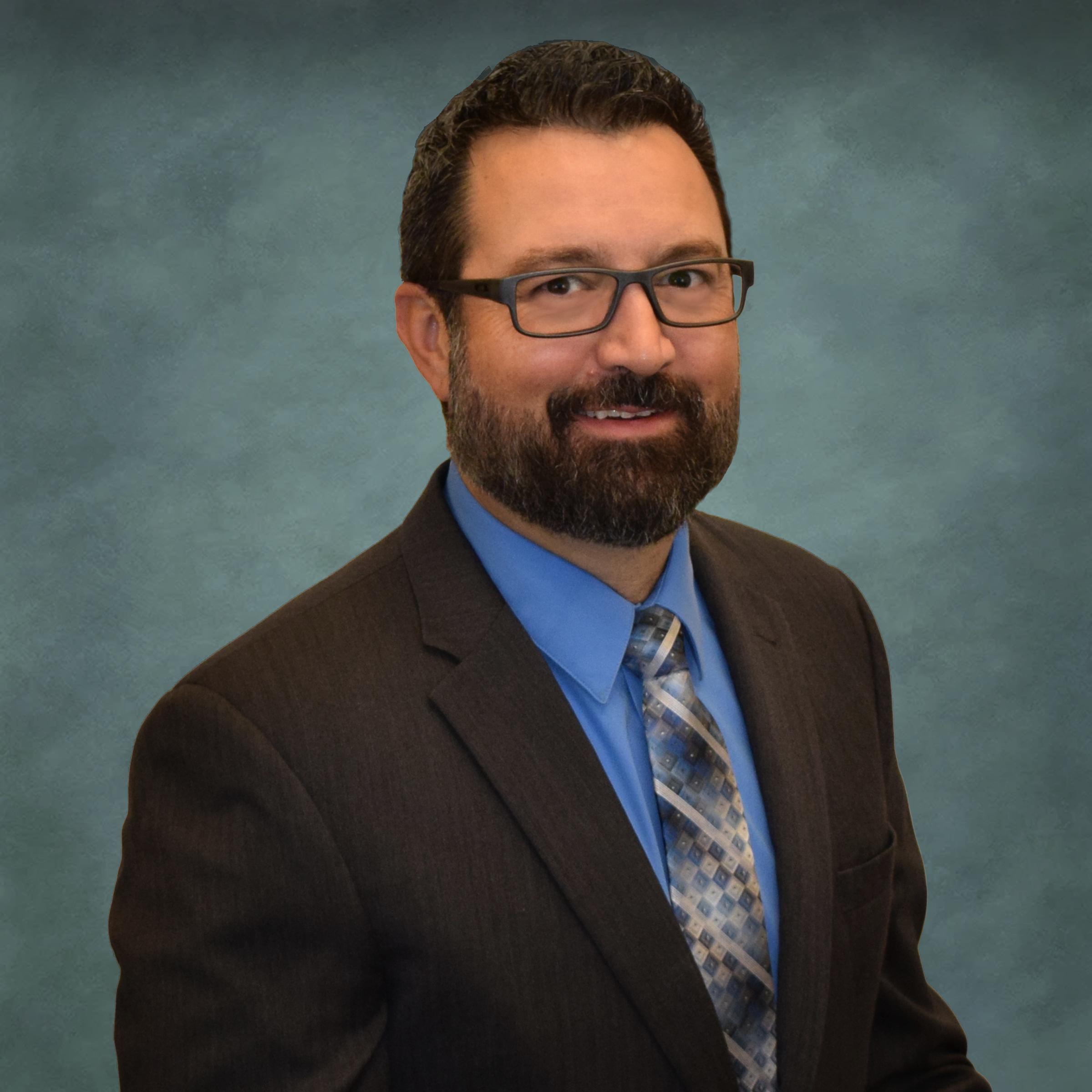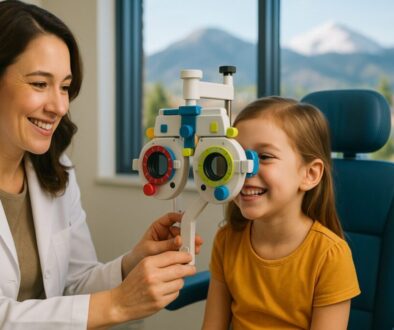Optometrist vs. Optician vs. Ophthalmologist
What’s the Difference, and Why You Should Know
Here’s a question any eye care professional hears frequently: what’s the difference between an optometrist, an optician, and an ophthalmologist? And, more practically, which one should you be seeing?
Our Poudre Valley staff often answers this question for our patients. We’d like to help set the record straight.

Optometrist vs. Optician vs. Ophthalmologist
In short, here are the definitions of each of these kinds of vision care professionals:
- An optometrist is a vision care and eye doctor who handles routine eye exams, prescribes corrective lenses, and addresses other vision problems.
- An optician specializes in corrective lenses, such as glasses and contacts.
- An ophthalmologist is a medical doctor who can perform eye-related medical and surgical procedures, as well as addressing general medical issues.
But of course, there’s more to it than just these basic definition. All of these roles are held by health care professionals who work in the field of vision and eye care.
Want more detail on each of these roles? Want to know who you should see for help with routine checkups, vision therapy, eye diseases, eye and vision care, and more? Here, we’re going to break down the definitions of who these different eye doctors are and what they do. We’ll also take a look at where they overlap, where they differ, and when you would see each. We hope it’s a helpful resource for you as you look for eye care and vision providers.
Introduction to Eye Health Care
Maintaining eye health is essential for overall well-being and quality of life. Eyes are not only vital for seeing but also for connecting with others and navigating the world around us. Regular eye checkups can prevent long-term vision problems and help in the early detection of serious eye conditions that could otherwise lead to vision loss. Understanding the roles of different eye care professionals—optometrists, opticians, and ophthalmologists—is crucial in seeking the right care at the right time. An optometrist primarily manages vision therapy and routine checkups, an optician is specialized in fitting and dispensing corrective lenses, and an ophthalmologist handles specific medical and surgical care for the eyes. Recognizing whom to consult for different eye issues ensures effective treatment and maintains optimal eye health.
What is an optometrist?
An optometrist provides primary vision care and eye care. For many people, an optometrist is the main person they will see for regular vision and eye health checkups.
How does someone become an optometrist?
After earning an undergraduate degree, all optometrists must earn a doctor of optometry degree from a four-year, professional doctorate program. After completing optometry school, many optometrists also will do a residency, especially if they are focusing on a specialty.
Optometrists must maintain their license through ongoing education. They can also choose to become board-certified by the American Board of Optometry.
Who should see an optometrist?
You should see an optometrist if:
- You are looking for a routine eye exam
- You need eyeglasses, prescription sunglasses, or contact lenses
- You are experiencing vision problems
- You have sudden vision changes, which can be a sign of diabetes mellitus, macular degeneration, and other issues
An optometrist can:
- Give you regular eye exams and vision tests
- Prescribe glasses or contact lenses to correct vision problems
- Diagnose and treat eye diseases and vision issues
If you are unsure which kinds of eye doctors you should see, you should start by checking in with your optometrist (or finding a new one if you don’t currently have an eyecare health provider). Optometrists can handle many sight-related services. If you need additional services, they can also refer you to the right optician, ophthalmologist, or health professional for the care you need. In short: if they can’t help you, they certainly know who can.
How optometrists differ from opticians and ophthalmologists
Unlike opticians, who focus on creating, fitting, and dispensing corrective lenses, optometrists can perform general vision exams and give prescriptions for vision correction. And unlike ophthalmologists, they cannot perform eye surgery or practice medicine more generally.
What is an optician?
An optician specializes in corrective lenses, focusing on both contact lenses and eyeglasses.
According to the Opticians Association of America, a professional organization for the field of opticianry, an optician can “make and supply eyeglasses and contact lenses” for vision correction.
Who should see an optician?
You should call your local optician if:
- You need eyeglasses or contact lenses
- You have a prescription for eyeglass lenses or contacts from an optometrist or ophthalmologist
How opticians differ from optometrists and ophthalmologists
Opticians are specifically focused on providing glasses and contacts. They do not perform regular eye exams or perform surgery.
Many opticians work with optometrists as part of one practice in order to provide specialized service for patients who require glasses or contacts. Here at Poudre Valley Eyecare, for example, we have both optometrists and opticians on our staff to serve our patients well.
What is an ophthalmologist?
An ophthalmologist is an eye doctor who can perform medical and surgical procedures on the eyes. Becoming an ophthalmologist requires long years of education and training; according to the American Academy of Ophthalmology, it takes between 12 and 14 years to gain an ophthalmology license. This long period of training is necessary to develop the skills to handle delicate surgical procedures on the eyes, as well as to practice medicine more generally.
Who should see an ophthalmologist?
You should see an ophthalmologist if:
- You have been referred to see one by your optometrist or optician for eye surgery
- You require medical and surgical treatment for a vision or eye problem
- You have a complex condition that requires a specialist
However, some ophthalmologists also perform routine eye exams, dispense eyeglasses prescriptions, and provide other regular services. You can see an ophthalmologist for any service you would also see an optometrist for.
How ophthalmologists Differ from opticians and optometrists
Unlike an optometrist or an optician, ophthalmologists are medical doctors. They have been to medical school, as opposed to optometry school. An ophthalmologist performs eye surgery when needed.
They are licensed more generally to practice medicine as well. Having this whole-body training is often very valuable, as eye health is closely related to certain other conditions in the body.
Like many optometry offices, Poudre Valley Eyecare does not have an ophthalmologist on staff. Instead, we refer patients who need eye surgery to trusted local offices, such as the Eye Center of Northern Colorado.
Navigating Eye Care: A Comprehensive Scenario Involving an Optometrist, Optician, and Ophthalmologist
This section follows Emma’s journey through the eye care system, showcasing how each professional—optometrist, optician, and ophthalmologist—plays a critical role in diagnosing, treating, and managing her eye health effectively.
Scenario for an Optometrist:
Situation: Emma, a 35-year-old software developer, notices that she’s experiencing headaches and eye strain, especially after long hours in front of her computer screen. Concerned about her symptoms, she decides to consult an eye care professional.
Professional Involved: Optometrist
Role & Actions:
- Consultation: Emma visits the optometrist, who conducts a comprehensive eye exam to assess her vision and eye health.
- Diagnosis: The optometrist diagnoses her with digital eye strain and a slight myopic shift due to prolonged screen time.
- Treatment: Emma is prescribed specialized computer glasses with anti-reflective coating to reduce glare and enhance focus. The optometrist also recommends taking regular breaks using the 20-20-20 rule (every 20 minutes, look at something 20 feet away for 20 seconds) to minimize eye strain.
Scenario For An Optician:
Situation: After visiting the optometrist, Emma receives a prescription for new computer glasses. She needs to have these glasses made as soon as possible to continue her work comfortably.
Professional Involved: Optician
Role & Actions:
- Fitting: Emma visits the optician with her prescription. The optician measures her pupillary distance and discusses frame options that would be best suited for her face shape and lifestyle needs.
- Dispensing: The optician helps Emma choose a lightweight frame with a comfortable fit and ensures the lenses are properly centered. The glasses are prepared with precision to match the prescription and fitted to ensure comfort.
- Education: The optician explains how to care for her new glasses and suggests a follow-up visit to adjust the fit if necessary.
Scenario For An Ophthalmologist:
Situation: During a routine visit, the optometrist notices irregularities in the back of Emma’s eyes that could indicate the onset of a retinal problem. Due to the potential seriousness of the condition, she is referred to a specialist.
Professional Involved: Ophthalmologist
Role & Actions:
- Examination: The ophthalmologist conducts a detailed examination of Emma’s retina using specialized imaging equipment.
- Diagnosis: The ophthalmologist diagnoses early signs of retinal detachment, a condition that could lead to severe vision loss if untreated.
- Treatment: Immediate laser surgery is recommended to repair the retina. The ophthalmologist performs the procedure, effectively preventing further damage and preserving Emma’s vision.
- Follow-Up: Emma is scheduled for regular follow-ups to monitor her recovery and ensure no further complications arise.
Key Takeaways
- Optometrist:
- Primary eye care: exams, prescriptions for glasses/contacts, and treatment of common eye issues.
- No surgery; refers to ophthalmologists if needed.
- Optician:
- Fits and dispenses glasses/contacts based on prescriptions.
- Does not perform exams or diagnose conditions.
- Ophthalmologist:
- Medical doctor specializing in eye surgery and complex eye conditions.
- Can also provide routine eye care.
- When to See:
- Optometrist: Routine exams, vision problems, or prescriptions.
- Optician: For fitting glasses/contacts.
- Ophthalmologist: Surgery or complex eye conditions.
- Collaboration:
- Optometrists and opticians work together; optometrists refer to ophthalmologists for advanced care.
- Importance:
- Regular eye exams prevent serious issues and ensure proper care.
- Example:
- Optometrist diagnoses eye strain, optician fits glasses, ophthalmologist performs surgery for retinal issues.
Frequently Asked Questions
-
What is the difference between an optometrist and an ophthalmologist?
An optometrist provides routine eye exams, prescriptions, and diagnoses common eye issues. An ophthalmologist is a medical doctor (MD) who performs surgeries and treats complex eye diseases. Optometrists focus on primary care, while ophthalmologists handle medical and surgical needs.
-
Can an optician prescribe glasses?
-
What qualifications should I look for in an eye care provider?
-
How to choose between an optometrist, optician, and ophthalmologist?
-
Who prescribes contact lenses: optometrist or optician?
-
Why should I see an ophthalmologist instead of an optometrist?
-
Will an optician perform an eye exam?
-
What services does an optician provide?
-
How does an optometrist diagnose eye diseases?
-
Who can perform eye surgery: optometrist or ophthalmologist?
-
What qualifications does an ophthalmologist have?
-
Where to get glasses fitted: optician or optometrist?
How to find an eye care professional you can trust
If you’re looking to get an eye exam or find a new vision care professional in your area, there are a few strategies you can use to find a qualified provider.
A few approaches you may want to try:
- Looking for providers with positive reviews on business review sites, local social media groups, and search results.
- Asking for recommendations from friends, neighbors, and colleagues who live in your area.
- Reviewing potential doctors to see if they are up to date with industry certifications and professional development.
- Looking for board-certified providers who stay up to date with the latest advances in the field.
Why Poudre Valley Eyecare
At Poudre Valley Eyecare, we understand the importance of matching you with the right eye care professional. Whether you’re looking for an optometrist for a routine checkup or need a referral to a skilled ophthalmologist for more complex care, our team is here to support you every step of the way.
Ready to Book an Appointment?
Contact us today to schedule a visit with our caring and knowledgeable staff. We are committed to answering any questions you have and ensuring you receive the best possible eye care.
Dr. Eric Torgerson
Owner at Poudre Valley Eyecare
Dr. Eric Torgerson is the owner of Poudre Valley Eyecare, and has been recognized for his contributions to optometry and his commitment to community health through various roles and accolades within the Northern Colorado Optometric Society and the Colorado Optometric Association.
Why Choose Us?
Our advanced technology and individualized care deliver results for patients of all ages. Our routine exams allow us to spot changes in your vision and allow us to treat those changes early. We have a comprehensive understanding of eye care, which means we can treat a wide range of conditions and chronic diseases. Our in-depth routine exams and customized treatment plans set us apart from the rest.


Please note: None of the above should be considered medical advice. If you’re having any concerns about your vision, please reach out to us immediately or see your primary care provider.




